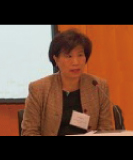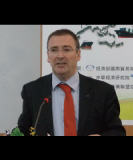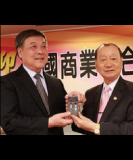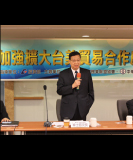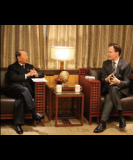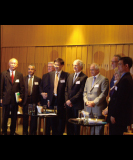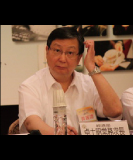You are browsing > Service in Taiwan > Development
Joint Statement on Trilateral Meeting of the Trade Ministers of the United States, Japan, and the European UnionUSTR
Ambassador Robert E. Lighthizer, United States Trade Representative, Mr. Hiroshige Seko, Minister of Economy, Trade and Industry of Japan, and Mrs. Cecilia Malmström, European Commissioner for Trade, met in Paris on 31st May 2018.
The Ministers reiterated their concern with the non-market-oriented policies of third countries and discussed actions being taken and possible measures that could be undertaken in the near future.
The Ministers confirmed their shared objective to address non market-oriented policies and practices that lead to severe overcapacity, create unfair competitive conditions for our workers and businesses, hinder the development and use of innovative technologies, and undermine the proper functioning of international trade, including where existing rules are not effective.
The Ministers agreed that market-oriented conditions are fundamental to a fair, mutually advantageous global trading system and discussed various elements or indications that signal that non-market oriented policies and practices exist for businesses and industries. Accordingly, they endorsed the annexed joint statement on market-oriented conditions and agreed to further their discussion on this issue and to engage with other trading partners on identifying means to maintain market-oriented conditions
In this regard, the Ministers concurred on the need to deepen and accelerate discussions regarding possible new rules on industrial subsidies and SOEs so as to promote a more level playing field for our workers and businesses.
The Ministers therefore endorsed the attached joint scoping paper defining the basis for the development of stronger rules on industrial subsidies and SOEs. On that basis, they agreed to deepen that work, and expressed their intention to begin their respective internal steps before the end of 2018 with the aim of initiating a negotiation soon thereafter. The Ministers emphasized the need to ensure the participation of key trading partners in these future negotiations.
The Ministers further confirmed their shared view that no country should require or pressure technology transfer from foreign companies to domestic companies, including, for example, through the use of joint venture requirements, foreign equity limitations, administrative review and licensing processes, or other means.
In this connection, the Ministers endorsed the annexed joint statement on technology transfer policies and practices.
The Ministers further agreed to deepen cooperation and exchange of information, including with other like-minded partners, to find effective means to address trade-distorting policies of third countries, including harmful forced technology transfer policies and practices, and where appropriate, to pursue dispute settlement proceedings at the WTO.
The Ministers acknowledged that resolving the issue of non-compliance by some governments with their WTO transparency obligations is a priority in the work for improving the effectiveness and efficiency of the WTO monitoring function. They agreed to continue cooperation in the WTO to achieve full implementation of existing WTO rules.
The Ministers welcome the progress of exploratory work of the Joint Statement E-Commerce Initiative in the WTO and reaffirmed their strong commitment to advance the discussions toward future WTO negotiations.
The Ministers reaffirmed their cooperation in international fora, such as the G7, G20 and the OECD and in sectoral initiatives such as the Global Steel Forum and Governments/Authorities Meeting on Semiconductors, to address market-distorting measures.
* * *
Annexed Statement 1:
EU-JAPAN-US SCOPING PAPER
to define the basis for the development of stronger rules on industrial subsidies
I. Introduction
The EU, Japanese and the US trade ministers, having met twice before to discuss the unfair competitive conditions caused by large market-distorting subsidies and state-owned enterprises, have agreed to take a number of initial joint actions, among others to define the basis for the development of stronger rules on industrial subsidies. The three partners share the view that the existing WTO rulebook on industrial subsidies should be clarified and improved to ensure that certain emerging developing Members do not escape its application.
The three partners agree to engage on a regular basis and will seek, subject to all applicable domestic procedures, to develop the basis for future negotiations with a critical mass of major industrial subsidy providers in order to achieve the objectives set out in Part II.
II. Objectives
The future negotiations should meet the following objectives, without prejudice to identifying further objectives in the course of the ensuing negotiations.
1. Need to improve transparency
The three partners agree that a number of other WTO Members do not notify at all or fail to notify most of the subsidies granted or maintained within their territories. This prevents other WTO Members from evaluating the trade effects and understanding the operation of notified subsidy programs. The partners therefore agree to construct direct or indirect incentives for WTO Members to fully comply with their notification obligations.
2. Need to better address public bodies and SOEs
There is a general convergence among the three partners on the need to better address market-distorting behavior of public bodies and SOEs. Such entities are the backbone and the distinctive feature of certain state-driven economic systems, through which the state decisively governs and influences the economy.
The three partners therefore agree to discuss the basis for determining that an entity should be characterized as a “public body;” how to address state-influenced market-distorting behavior of entities not characterized as public bodies; and additional obligations and rules for public bodies and SOEs, including increased transparency.
3. Need to have more effective subsidy rules
The three partners as a start agree:
that the most harmful types of subsidies should either be prohibited outright or the subsidizing country be obligated to prove that the subsidy does not cause commercial harm to others.
to develop new rules that provide a targeted remedy to address subsidies related to excess capacity.
to find ways to strengthen the provisions of the WTO rules to allow for greater information gathering in relation to subsidies and their effects.
* * *
Annexed Statement 2:
Joint Statement on Technology Transfer Policies and Practices
Ambassador Robert E. Lighthizer, United States Trade Representative, Mr. Hiroshige Seko, Minister of Economy, Trade and Industry of Japan, and Mrs. Cecilia Malmström, European Commissioner for Trade, met in Paris on 31 May 2018.
The Ministers discussed their growing concerns regarding the policies and practices third countries relating to technology transfer.
The Ministers confirmed their shared view that no country should require or pressure technology transfer from foreign companies to domestic companies, including, for example, through the use of joint venture requirements, foreign equity limitations, administrative review and licensing processes, or other means.
The Ministers discussed the harmful effects of regulatory measures that force foreign companies seeking to license technologies to domestic entities to do so on non-market-based terms that favor domestic entities.
The Ministers discussed the need to establish and share best practices, coordinating where useful, on mechanisms to stop the practices by governments that direct and unfairly facilitate the systematic investment in, and acquisition of, foreign companies and assets to obtain technologies and intellectual property and generate the transfer of technology to domestic companies.
The Ministers condemned government actions that support the unauthorized intrusion into, and theft from, the computer networks of foreign companies to access their sensitive commercial information and trade secrets and use that information for commercial gain.
The Ministers agreed that the above types of policies and practices create unfair competitive conditions for our workers and businesses, hinder the development and use of innovative technologies, and undermine the proper functioning of international trade.
The Ministers further agreed to work together, including with other like-minded partners, to find effective means to stop harmful forced technology transfer policies and practices, including, where appropriate, dispute settlement proceedings at the WTO.
* * *
Annexed Statement 3:
Joint Statement on Market Oriented Conditions
Ambassador Robert E. Lighthizer, United States Trade Representative, Mr. Hiroshige Seko, Minister of Economy, Trade and Industry of Japan, and Mrs. Cecilia Malmström, European Commissioner for Trade, met in Paris on 31 May 2018.
The Ministers confirmed their shared objective to address non market-oriented policies and practices that lead to severe overcapacity, create unfair competitive conditions for our workers and businesses, hinder the development and use of innovative technologies, and undermine the proper functioning of international trade, including where existing rules are not effective.
In this regard, the Ministers noted their citizens and businesses operate under market oriented conditions. Such market oriented conditions are fundamental to a fair, mutually advantageous global trading system.
The Ministers noted the following elements or indications that signal that market conditions exist for businesses and industries:
decisions of enterprises on prices, costs, inputs, purchases, and sales are freely determined and made in response to market signals;
decisions of enterprises on investments are freely determined and made in response to market signals;
prices of capital, labor, technology, and other factors are market-determined;
capital allocation decisions for or affecting enterprises are freely determined and made in response to market signals;
enterprises are subject to internationally recognized accounting standards, including independent accounting;
enterprises are subject to corporation law, bankruptcy law, and private property law; and
there is no significant government interference in enterprise business decisions described above.
The Ministers agreed to further their discussion on this issue, including possible identification of additional elements, and to engage with other trading partners on identifying means to maintain market oriented conditions.

